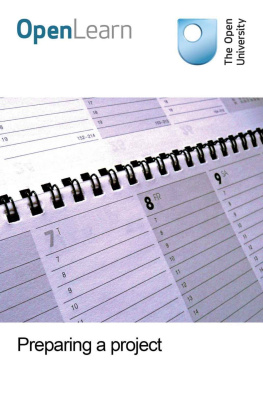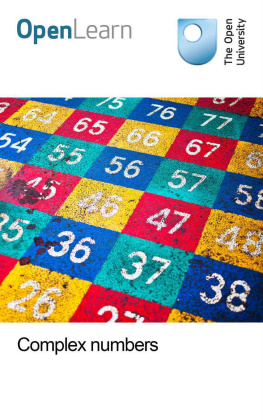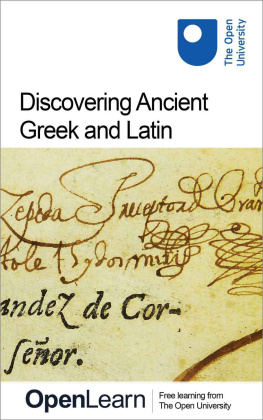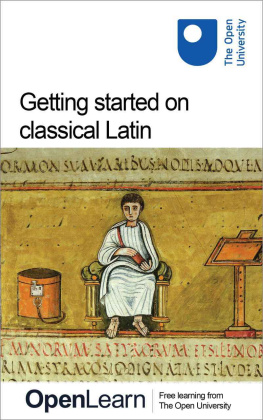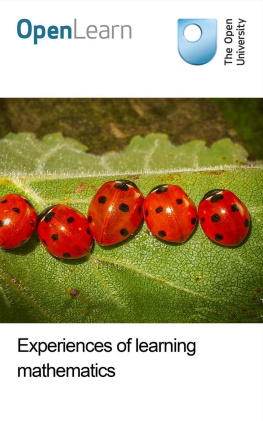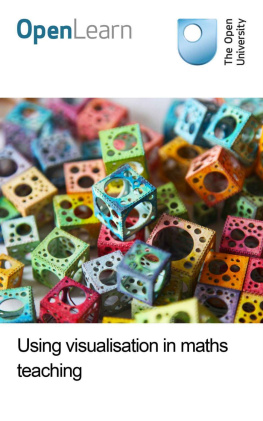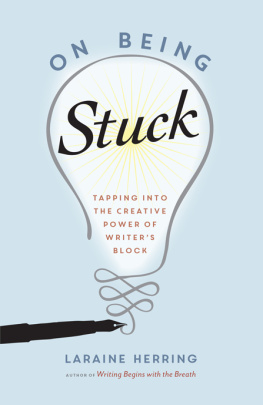University - Preparing a project
Here you can read online University - Preparing a project full text of the book (entire story) in english for free. Download pdf and epub, get meaning, cover and reviews about this ebook. year: 2016, publisher: The Open University, genre: Business. Description of the work, (preface) as well as reviews are available. Best literature library LitArk.com created for fans of good reading and offers a wide selection of genres:
Romance novel
Science fiction
Adventure
Detective
Science
History
Home and family
Prose
Art
Politics
Computer
Non-fiction
Religion
Business
Children
Humor
Choose a favorite category and find really read worthwhile books. Enjoy immersion in the world of imagination, feel the emotions of the characters or learn something new for yourself, make an fascinating discovery.
- Book:Preparing a project
- Author:
- Publisher:The Open University
- Genre:
- Year:2016
- Rating:3 / 5
- Favourites:Add to favourites
- Your mark:
- 60
- 1
- 2
- 3
- 4
- 5
Preparing a project: summary, description and annotation
We offer to read an annotation, description, summary or preface (depends on what the author of the book "Preparing a project" wrote himself). If you haven't found the necessary information about the book — write in the comments, we will try to find it.
Preparing a project — read online for free the complete book (whole text) full work
Below is the text of the book, divided by pages. System saving the place of the last page read, allows you to conveniently read the book "Preparing a project" online for free, without having to search again every time where you left off. Put a bookmark, and you can go to the page where you finished reading at any time.
Font size:
Interval:
Bookmark:
About this free course
This OpenLearn course provides a sample of postgraduate study in Business http://www.open.ac.uk/postgraduate/find/business
This version of the content may include video, images and interactive content that may not be optimised for your device.
You can experience this free course as it was originally designed on OpenLearn, the home of free learning from The Open University: www.open.edu/openlearn/money-management/management/business-studies/preparing-project/content-section-0.
There youll also be able to track your progress via your activity record, which you can use to demonstrate your learning.
The Open University Walton Hall, Milton Keynes MK7 6AA
Copyright 2016 The Open University
Intellectual property
Unless otherwise stated, this resource is released under the terms of the Creative Commons Licence v4.0 http://creativecommons.org/licenses/by-nc-sa/4.0/deed.en_GB. Within that The Open University interprets this licence in the following way: www.open.edu/openlearn/about-openlearn/frequently-asked-questions-on-openlearn. Copyright and rights falling outside the terms of the Creative Commons Licence are retained or controlled by The Open University. Please read the full text before using any of the content.
We believe the primary barrier to accessing high-quality educational experiences is cost, which is why we aim to publish as much free content as possible under an open licence. If it proves difficult to release content under our preferred Creative Commons licence (e.g. because we cant afford or gain the clearances or find suitable alternatives), we will still release the materials for free under a personal end-user licence.
This is because the learning experience will always be the same high quality offering and that should always be seen as positive even if at times the licensing is different to Creative Commons.
When using the content you must attribute us (The Open University) (the OU) and any identified author in accordance with the terms of the Creative Commons Licence.
The Acknowledgements section is used to list, amongst other things, third party (Proprietary), licensed content which is not subject to Creative Commons licensing. Proprietary content must be used (retained) intact and in context to the content at all times.
The Acknowledgements section is also used to bring to your attention any other Special Restrictions which may apply to the content. For example there may be times when the Creative Commons Non-Commercial Sharealike licence does not apply to any of the content even if owned by us (The Open University). In these instances, unless stated otherwise, the content may be used for personal and non-commercial use.
We have also identified as Proprietary other material included in the content which is not subject to Creative Commons Licence. These are OU logos, trading names and may extend to certain photographic and video images and sound recordings and any other material as may be brought to your attention.
Unauthorised use of any of the content may constitute a breach of the terms and conditions and/or intellectual property laws.
We reserve the right to alter, amend or bring to an end any terms and conditions provided here without notice.
All rights falling outside the terms of the Creative Commons licence are retained or controlled by The Open University.
Head of Intellectual Property, The Open University
Open University
978-1-4730-1916-4 (.kdl)
978-1-4730-1148-9 (.epub)
Many managers find that they are required to manage projects. In this unit we aim to help you to take an overview of the features of a project and the issues that arise in managing a project. Once you have identified a piece of work as a project, you are able to use a number of management approaches that have proven effective in managing projects. A project is a one-off, non-repeated activity or set of tasks that achieves clearly stated objectives within a time limit. Most projects are goal-oriented with clear beginnings, middles and ends, have constraints that limit and define the process, and outcomes that can be measured in terms of performance against agreed indicators. Other features of a project include the purpose, goals, resources, constraints and quality requirements.
All of the matters listed in the Learning outcomes below need to be considered before the detailed project brief or definition document can be drawn up. The project brief is an important document because it details the agreement that guides all the subsequent stages of a project.
Having completed your study of this unit, you should be able to prepare a project brief or definition document so that agreement can be obtained with the project sponsor. This document will provide a blueprint for the planning phase of the project which you can study in OpenLearn unit Planning a Project.
This OpenLearn course provides a sample of postgraduate study in Business
After studying this course, you should be able to:
- identify the main features of a project
- explain the importance of the key dimensions of budget, time and quality
- identify the links between a project's scope and definition and a sponsor's strategic and operational objectives
- agree the objectives of the project in sufficient detail to enable it to be planned effectively
- assess the feasibility of a project and to negotiate any necessary amendments with the sponsor to ensure that the goals can be achieved within the constraints of the project.
One definition is
A project is a one-off, non-repeated activity or set of tasks which achieves clearly stated objectives within a time limit.
Most managers work on projects, often small or short-term projects, rather than large ones that take several years to complete. Size or length of time do not indicate that one project is more important than another often small projects pave the way for major improvements to be made. A project is often about creating something new or implementing a major change that can be viewed as a complete event.
The project may be expected to deliver financial benefits to the organisation.
In the public sector projects are usually expected to lead to social, economic and political outcomes.
All projects are different. The level of complexity differs and the context in which a project exists will affect it. There is no single right way to manage a project. All projects have customers.
There are three key dimensions to a project:
budget
time
quality
and these have to be balanced to manage a project successfully.

Figure 1 The balance of project dimensions
These three dimensions are interlinked and each of the dimensions will probably receive particular attention at different stages in the project. The model is useful in reminding us of the tensions that may arise in attempts to keep each of these dimensions progressing according to plan. Traditional approaches to management of projects have focused on the technical aspects and often paid less attention to the influence of people on the project. People commission and sponsor projects, people are stakeholders in projects and people plan and carry out projects. In managing a project, the leadership, motivation and management of the people involved are as important as using appropriate planning, control and monitoring techniques. Again, there is a balance to be achieved. There will be people who want the project to succeed and people who are antagonistic towards it for some reason for example, not everyone benefits from a new road, shopping centre or airport. There are also people involved in completing the project. The project team will have a range of different attitudes towards the project and may or may not want it to succeed! It would therefore be useful to draw up a in order to see the stages of the project and who needs to be contacted.
Font size:
Interval:
Bookmark:
Similar books «Preparing a project»
Look at similar books to Preparing a project. We have selected literature similar in name and meaning in the hope of providing readers with more options to find new, interesting, not yet read works.
Discussion, reviews of the book Preparing a project and just readers' own opinions. Leave your comments, write what you think about the work, its meaning or the main characters. Specify what exactly you liked and what you didn't like, and why you think so.

